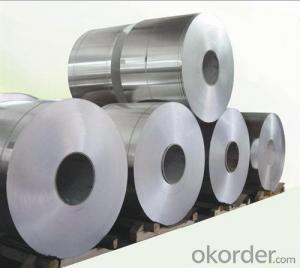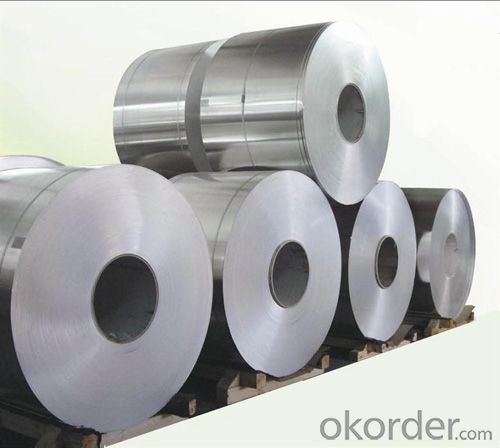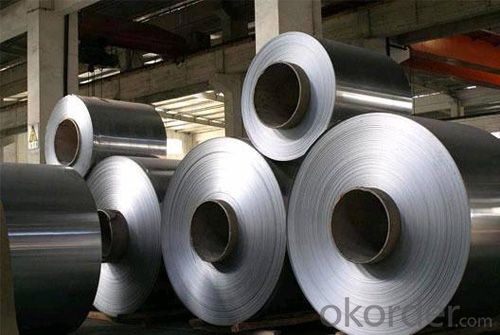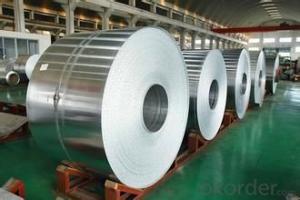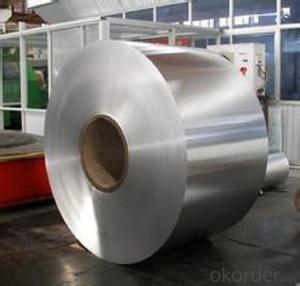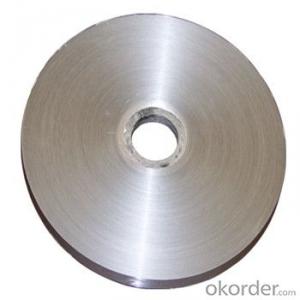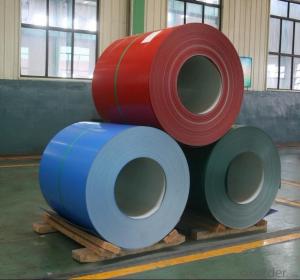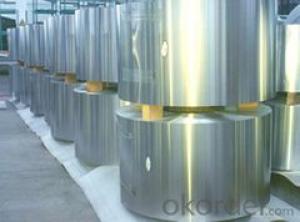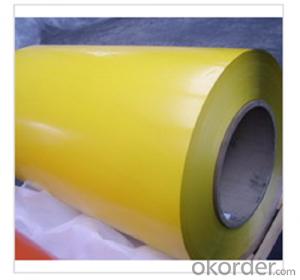Painting Aluminum Coil Stock for Industrial Applications
- Loading Port:
- China main port
- Payment Terms:
- TT OR LC
- Min Order Qty:
- 5 m.t.
- Supply Capability:
- 10000 m.t./month
OKorder Service Pledge
OKorder Financial Service
You Might Also Like
Specification
1. Specification of Aluminium Coils for Industrial Applications
Alloy: 1050, 1060, 1100, 1200, 3003, 3004, 3105, 1235, 8011, 8079, 8006, 5005, 5052, 5754, 5083,etc
2) Temper: Free
3) Thickness: ≥3mm
4) Width: 900-2300mm
5) Weight: 7-8 tons per coil
6) Dimensions and weight can be produced according to clients' specifications.
7) Inner Diameter: 505mm, 605mm
8) Packing: Export standard, wooden pallet.
9) Delivery time: 10-20 days
10) Minimum order quantity:20 tons per size.
11) The term of payment: T/T, irrevocable L/C at sight.
12) Surface: Bright
13)Origin: China
2. Feature of Aluminium Coils for Industrial Applications
*Such coil is specially designed to replace aluminum ingot, due to the high export tax of aluminum ingot, the coil has better price than ingot.
*This type of coil can fit customer's remelting furnace just like ingot, no need to make any change to the production line that was previously used for ingot. The standard coil size and weight is very suitable for the feed gate of furnace.
*This type of coil causes less material wastage than ingot when remelted.
*Our coil is made directly from ore, no need to go though the ingot making process, quality is much better than other suppliers who use ingot scrap to make coil.
Be free from Oil Stain, Dent, Inclusion, Scratches, Stain, Oxide Dicoloration, Breaks, Corrosion, Roll Marks, Dirt Streaks and other defect which will interfere with use
3. Certificate:
SGS and ROHS(if client request, paid by client), MTC(plant provided), Certificate of Origin(FORM A, FORM E, CO), Bureau Veritas and SGS (if client request, paid by client), CIQS certificate
4. Image of Aluminium Coils for Industrial Applications
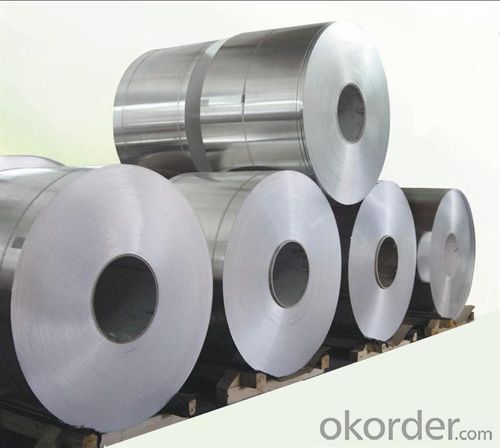
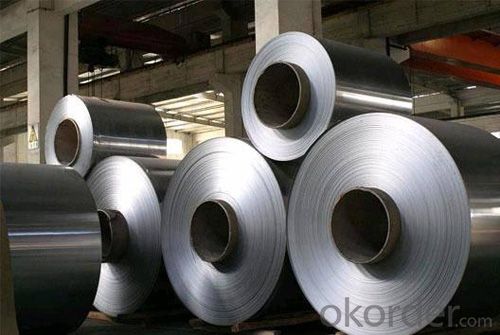
6. Package and shipping of Aluminium Coils for Industrial Applications
eye to sky
eye to wall
with wooden pallet (wooden case also available)
7. FAQ
1) What is the delivery time?
Dpends on actual order, around 20 days
2) What is the QC system:
We have QC staff of 20 persons and advanced equipment, each production is with MTC traced from Aluminum ingot lot.
3) What market do you mainly sell to?
Australia, America, Asia, Middle East, Western Europe, Africa etc
- Q: I have found many articles claiming that the aluminum content in soy (baby) formula is very high.What I am wondering is- does regular old soy milk for adult consumption also have very high aluminum content?I am extensively researching all possible ways to relieve my 14 month olds terrible constipation. He is not allergic to milk- he was on a milk-based formula. We VERY slowly switched over to whole cow's milk- which turned out to once again be terribly constipating. It was suggested I give lactose-free milk a try- which has seemed to help a little bit- it was working OK for a few days- but he did have quit the hard (and painful) bowel movement a couple days ago. We are trying other options- juices, he's active, we are trying to get enough fiber into this picky eater's diet. I am just researching the possibility of soy milk if this problem persists.I am not willing to give it to him if the aluminum content is even a small possibility. I am not finding much info about adult soy milk. Anyone??
- I found this on the FAQ for Eden Soy products: Claim 12: Soy foods may contain harmful levels of aluminum. (Fallon, 1996)[21] Answer 12: The author describes aluminum occurring in soy as a result of an industrial processing step. This occurs only when producers use harsh alkaline soaking solutions that leach aluminum from aluminum processing equipment. Not all soy processing uses alkaline soaking solutions and not all soy is produced using aluminum equipment. Harsh alkaline soaking solutions are used mainly in the production of modern soy foods such as soy protein isolates, soy protein concentrates, soy supplements, soy protein shakes, textured soy protein (TSP), etc. Eden does not use alkaline soaking solutions and does not use aluminum equipment. Our test results show no trace of aluminum in Edensoy, testing at a sensitivity of .1ppm. The study it references talks about soy formula, not soy milk. It sounds as if the soy picks up its aluminum content from the manufacturing equipment. Edensoy claims they are aluminum-free (implying that other companies are not)... however, it is of course a biased source! Our oldest has been on soy milk/goat milk combination for a while now (we don't do dairy), however, we are in process of weaning off soy for good as we have other concerns besides aluminum: MEDICAL CONDITIONS POSSIBLY ATTRIBUTABLE TO SOY CONSUMPTION Asthma Chronic Fatigue Depression Diabetes Heart Arrhythmia Heart or Liver Disease Infertility/Reproductive Problems Irritable Bowel Syndrome Learning Disabilities/ADD/ADHD Pancreatic Disorders Premature or Delayed Puberty Rheumatoid Arthritis Thyroid Conditions: Auto-Immune Thyroid Disorders (Graves’ or Hashimoto’s Disease) Goiter Hypothyroidism Hyperthyroidism Thyroid Nodules Thyroid Cancer Other thyroid disorders Uterine Cancer Weight Gain nothing is proven but the possibility is enough for us to give it up).
- Q: How are aluminum coils used in the production of heat exchangers?
- The production of heat exchangers heavily relies on aluminum coils, which have a crucial role in the process. Heat exchangers, devices utilized for transferring heat between multiple fluids, are capable of efficiently heating or cooling in diverse applications. The primary reason for employing aluminum coils in heat exchanger production is the distinct properties possessed by aluminum. First and foremost, aluminum serves as an exceptional heat conductor. It exhibits high thermal conductivity, enabling effective heat transfer from one fluid to another. This characteristic plays a pivotal role in heat exchangers, guaranteeing swift and efficient heat exchange. Secondly, aluminum is both lightweight and boasts a high strength-to-weight ratio. Consequently, it is an ideal choice for heat exchangers, facilitating the creation of compact and lightweight units that can be effortlessly installed in various systems. The lightweight nature of aluminum coils also reduces the overall weight of the heat exchanger, which proves advantageous in weight-sensitive applications such as the automotive or aerospace industries. In addition, aluminum coils possess outstanding resistance to corrosion. Aluminum naturally forms a thin oxide layer on its surface, thus safeguarding it from corrosion. This resistance is critical in heat exchangers, which frequently come into contact with diverse and potentially corrosive fluids. By employing aluminum coils, the longevity and durability of the heat exchanger are ensured, averting premature failure or damage. Moreover, aluminum coils are highly malleable, allowing for easy shaping into various sizes and forms. This manufacturing flexibility enables the production of customized heat exchangers tailored to specific applications and requirements. The ability to shape aluminum coils also facilitates the design of intricate heat exchanger geometries, optimizing the heat transfer surface area and enhancing overall performance. To summarize, aluminum coils are extensively utilized in heat exchanger production due to their high thermal conductivity, lightweight nature, corrosion resistance, and malleability. These properties make aluminum an ideal material for efficient heat transfer, compact designs, durability, and customization. Altogether, aluminum coils contribute significantly to the efficacy and reliability of heat exchangers in diverse industries and applications.
- Q: Is it safe and effective to use an electric stove to heat an aluminum coil?
- <p>Yes, you can use an electric stove to heat an aluminum coil. Aluminum is a good conductor of heat, so it will heat up when placed on an electric stove. However, it's important to ensure the coil is clean and free of any non-stick coatings that could be damaged by high heat. Also, be cautious of the temperature settings on your stove, as aluminum can melt at high temperatures. Always monitor the coil to prevent overheating or fire hazards.</p>
- Q: How do aluminum coils contribute to sustainable and green building practices?
- Aluminum coils contribute to sustainable and green building practices in several ways. Firstly, aluminum is a highly recyclable material, allowing for the reuse of aluminum coils in various applications, reducing waste and conserving natural resources. Additionally, aluminum is lightweight, which reduces transportation energy and costs during installation. Furthermore, aluminum coils have exceptional durability and corrosion resistance, resulting in longer lifespan and reduced maintenance needs. This longevity contributes to the overall sustainability of buildings, as they require fewer replacements and repairs. Lastly, aluminum is an energy-efficient material, as it has excellent thermal conductivity, allowing for better insulation and reduced energy consumption for heating and cooling purposes. Overall, the use of aluminum coils promotes sustainability, resource conservation, energy efficiency, and reduced environmental impact in green building practices.
- Q: Can aluminum coils be used in the production of aluminum composite windows?
- Yes, aluminum coils can be used in the production of aluminum composite windows. Aluminum coils are commonly used in the manufacturing process of aluminum composite windows. These coils are made from high-quality aluminum and are often used as the raw material that is then formed and shaped into the desired window frames and components. Aluminum coils offer several advantages in the production of aluminum composite windows, including their lightweight nature, durability, and resistance to corrosion. These qualities make aluminum coils a suitable choice for manufacturers looking to produce high-quality and long-lasting aluminum composite windows.
- Q: What is the expected lead time for manufacturing aluminum coils?
- The expected lead time for manufacturing aluminum coils can vary depending on the complexity of the order, the quantity needed, and the production capacity of the manufacturer. Generally, it can range from a few weeks to a couple of months.
- Q: How do aluminum coils perform in coastal areas with high salt content?
- Due to their inherent corrosion resistance, aluminum coils perform relatively well in coastal areas with high salt content. The formation of a natural oxide layer on the surface of aluminum provides a protective barrier against saltwater, effectively preventing corrosion. This oxide layer is highly resistant to salt-induced corrosion, making aluminum coils suitable for use in coastal environments. However, it is important to note that over time, saltwater can still have some corrosive effects on aluminum, especially in areas that are constantly exposed to salt spray and high humidity. To enhance the performance and lifespan of aluminum coils in such coastal areas, additional protective measures can be taken. These measures include the application of specialized coatings or the use of alloys with higher corrosion resistance. Regular maintenance and cleaning of the coils are also crucial in order to remove any salt deposits that may accumulate on the surface. This can be achieved by periodically rinsing the coils with fresh water to eliminate salt residue. It is also important to avoid the use of abrasive cleaners or harsh chemicals, as they can potentially damage the protective oxide layer. In conclusion, although aluminum coils offer good resistance to saltwater corrosion, proper care and maintenance are still necessary to ensure optimal performance and extend their lifespan in coastal areas with high salt content.
- Q: What specific conditions or precautions are necessary to ensure the proper storage of aluminum coils to maintain their quality and prevent damage?
- <p>Yes, there are special requirements for storing aluminum coils to ensure their quality and prevent damage. Aluminum coils should be stored in a cool, dry place away from direct sunlight and moisture. They should be kept on flat, level surfaces with proper support to prevent warping or denting. It's also important to avoid stacking them too high to prevent crushing. Additionally, coils should be protected from contact with corrosive materials or chemicals that could cause oxidation or staining. Proper labeling and tracking of coils is also essential for inventory management.</p>
- Q: I am writing a science-fiction story, and I am planning on making Aluminum this ultra-valuable element (Which adds irony - Aluminum is the third most abundant element on Earth!) Even if ol' atomic no. 13 is as common throughout the universe as it is on Earth, I can bring up 'multiverse' to get away with it. I think it'd still be nice to know.
- Interesting, the aluminum must flow? Aluminum is not as common as other elements. It is not readily produced in the cores of stars through the alpha-capture process (which produces things like carbon, oxygen, neon, magnesium, silicon, etc.). This means it is only produced via supernova explosions. The table in Wikipedia (see link below) will give you an idea of the relative abundance to other elements. (Notice that magnesium and silicon, which are before and after aluminum, are nearly 100 times more abundant). As a fellow, Sci-Fi enthusiast, I'd remind you to make you're story believable. If you decide that your universe won't have supernovae, remember that would mean there would be no iron, gold, uranium, etc. My answer has been long enough, but I'm sure you have an idea why aluminum is so abundant on the Earth's crust so I'll stop here.
- Q: Can aluminum coils be used for solar panel applications?
- Yes, aluminum coils can be used for solar panel applications. They are often utilized as the base material for solar panels due to their lightweight, corrosion-resistant, and durable properties. Additionally, aluminum coils offer good thermal conductivity, enabling efficient heat dissipation in solar panels.
Send your message to us
Painting Aluminum Coil Stock for Industrial Applications
- Loading Port:
- China main port
- Payment Terms:
- TT OR LC
- Min Order Qty:
- 5 m.t.
- Supply Capability:
- 10000 m.t./month
OKorder Service Pledge
OKorder Financial Service
Similar products
Hot products
Hot Searches
Related keywords
